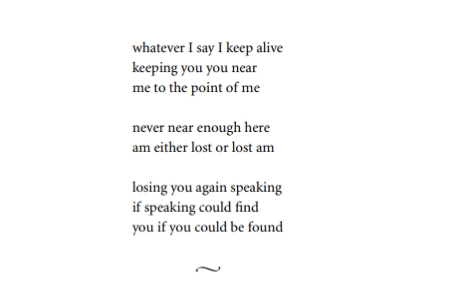Articles/Essays – Volume 49, No. 4
Nosebleed (A Mormon Pilgrimage)
Paese mio che stai sulla collina,
disteso come un vecchio addormentato,
la noia, l’abbandono, e il niente
sono la tua malattia.
Paese mio ti lascio, io vado via.
—Ricchi e Poveri
I. Water into Blood
This is the most I’ve bled in a while,
blood blooms in the sink like a burnt offering.
It is hot today.
A forlorn train calls
through the open window.
And my blood slides down the dirty sink.
The train is a sea lion that swims in with the tide,
finds a rock
and barks
for whoever will listen to its eloquent nonsense.
The ocean is hundreds of miles away.
This is the closest I will come to hearing it.
I inhabit both the ocean and the high desert,
turning water into blood,
spouting nonsense and forlorn calls.
And my blood dries in the dirty
sink like saltwater in a basin.
II. Water into Wine
Mountains.
An overwhelming sense of mountains was the feeling
when I first moved here; claustrophobic, incarcerating,
decorated with an enormous white Y,
a massive innocent question: Y?
I came to Utah like a curse from God.
I didn’t rain frogs or murder firstborns,
but if I keep bleeding at this rate
I believe the Provo River will turn to blood
to the dismay of hipsters tubing or taking pictures
up the canyon for wedding announcements.
Most of them come here to fish,
reel in their prospects with fish hooks and wedding ring lures,
then throw them back.
The biggest fish are in the ocean.
You can wander for forty years in a desert and never
find promise.
III. King of the Mountain
I have been pushed around too much to think this game is fun.
I dream about nudging the mountains down
like a structure made of beach sand,
revealing an ocean on the other side.
This landscape is salty. The air makes me bleed.
The rocks belie a former life of wetness.
Basins of rain, basins of blood,
the salt flats yearn for moisture.
The geology of my genealogy is a vein of blood traveling West
spilling into Monterey Bay.
I did not come back to Utah to be King.
My bloodline sediments in the salty sink.
IV. Bats
This is bat country.
A fruit bat flew out of my fireplace,
circling the living room.
I think the bat was scared, in an unfamiliar place,
circling because what else could it do,
surrounded on all sides by an alien domesticity?
When your life has always been upside-down
in a chimney, I think the best you can do is
circle the room
to make sure the walls aren’t closing in.
I opened the door to let the bat outside and heard the big Y shouting,
“Y God? Y?”
Sometimes it’s worth not answering
to keep a beautiful question alive.
V. I wish I could go back, John Steinbeck
If John Steinbeck is God, Monterey is heaven,
wild like a seagull singing—
so fleeting in the shimmer—
we don’t get to tame heaven and earth;
like the estuaries—water becoming ocean,
or my blood washing down the sink—
we don’t get to keep heaven and earth;
not the waves, not the smell of salt and fish.
We can only let it pass through us
like blood pumping, circulating, then spilling.
In Monterey, John Steinbeck is God,
locked in a museum. The churches are empty.
Cannery Row is now a tourist trap and the tin cannery is a strip mall
with boutiques and outlets and a restaurant that sells pancakes.
Monterey is now a fake flower pinned to Pacific Ocean’s lapel,
a dapper lie. Golf course Versailles.
The place for the wealthy to retire.
I’m sorry John Steinbeck, but it’s too late for poor people.
We live in Utah.
My pilgrimage has ended in Provo.
I came in with a red Nile tide
to spread my fat out on a rock and BARK!
(upon this rock will I build my kingdom)
I am the cherubim circling circling
circling around the tree of life with a flaming sword,
not to protect it, but to keep the walls from closing in.
This is bat country after all,
and when my blood is dribbling out
I begin to think death tastes like salt and copper
and I hear the train again . . .
In Monterey, you can hear the sea lions from across the city,
or while eating pancakes at the tin cannery.
One could do worse than be a sea lion,
barking on a salty rock.


 Back to full Issue
Back to full Issue

